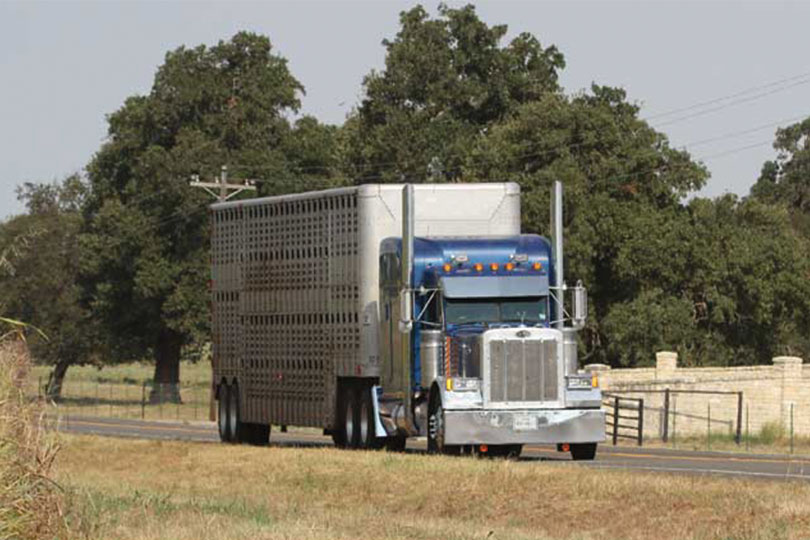After five years of concern, agricultural truckers moving livestock, live fish and insects received the kind of waiver on the road they were looking for.
The Department of Transportation (DOT) has placed a 90-day delay on the implementation of electronic logging devices (ELD) for agricultural commodities.
The DOT’s Federal Motor Carrier Safety Administration (FMCSA) announced yesterday that it intends to move forward with the ELD rule on Dec. 18. The 90-day waiver is specifically for agriculture to allow FMCSA to evaluate issues surrounding the hours of service requirements, which was the primary concern from agriculture.
The congressionally-mandated rule requires installation and use of ELDs and is meant to maintain a safe work environment on the road through better driving record management and tracking. The ELD works by synchronizing with the vehicle engine and records driving time or hours of service.
The American Farm Bureau Federation (AFBF) and several other organizations successfully petitioned the DOT to grant a rule exemption for truckers due to concerns with the hours-of-service requirements included in the mandate.
“Time spent on a truck can be stressful for cattle and other live animals. Unnecessary stops or multiple loads and unloads add additional stress resulting in potential livestock weight loss and increased animal sickness and death,” AFBF President Zippy Duvall said in a statement earlier this year.
Under the ELD rule, drivers would be limited to current hours of service rules, which restrict a driver to only 14 “on duty” hours with no more than 11 active driving hours. Once drivers reach the maximum hour allotments, they must stop and rest for 10 consecutive hours, which would be problematic when transporting livestock and other live animals.
The hours of service stipulations make it difficult to transport livestock long distances, according to the farm groups.
FMCSA plans to have a comment period in the coming weeks to seek guidance on a potential hours of service exemption for agriculture commodity transport. The government organization will also help clarify the 150-air mile exemption and the related hours of service.
“Public participation in this guidance is essential to the process, so we ask for continued engagement from all impacted stakeholder groups across industries,” FMCSA said in a statement.


THE 14 hour is a unsafe act cause driver not rest when needed you can not stop the 14 hour which is only 13 hrs because pre trip & post trip for 15 min each time and 30 minute rest break 14 hour rule need’s to end
Actually, the rule says you livestock haulers may drive a maximum of 11 hours after 10 consecutive hours off duty. Not the 13 you mention.
Please get correct information on subjects and carefully read other people’s statements before commenting. He didn’t specifically say 13 hours driving. The extra is on duty non driving time. One key thing which would make safer truck drivers, is if all drivers of any motor vehicles would drive safe. Instead of unaware, aggressive and dangerous. The stress of driving conditions is as tiresome as lack of rest. Thank you.
Completely agree with the last part of your comment. Road safety is something everyone owns and truckers get the blame most of the time. There is unfortunately always someone on the road that should not be there. The information provided is correct and it came directly from the DOT ELD information page. It’s full of good reading on this subject if you care to take a look.